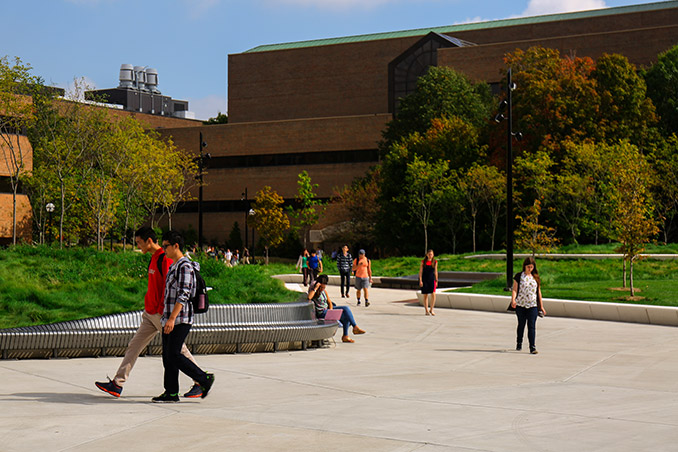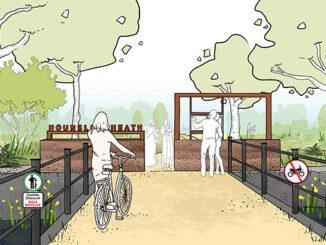
The U.S. Immigration and Customs Enforcement (ICE) and Department of Homeland Security (DHS) have recently designated Landscape Architecture as a STEM (science, technology, engineering, or mathematics) discipline, thus allowing F-1 visa students to be eligible to apply for a 24 month STEM Optional Practical Training Extension (STEM-OPT) after completion of their degree.
Landscape Architecture (04.0601) A program that prepares individuals for the independent professional practice of landscape architecture and research in various aspects of the field. Includes instruction in geology and hydrology; soils, groundcovers, and horticultural elements; project and site planning; landscape design, history, and theory; environmental design; applicable law and regulations; and professional responsibilities and standards. This field of study, as described in the NCES definition, is comprised of STEM disciplines such as research, innovation, or development of new technologies using natural sciences, engineering, and mathematics.
U.S. Immigration and Customs Enforcement (ICE), Department of Homeland Security (DHS).
The American Society of Landscape Architects has been advocating for the addition of Landscape Architecture as a STEM discipline. “Landscape architecture applies science, technology, cutting edge research, and engineering principles, to design healthy communities, active transportation projects, campuses and parks. We help communities adapt to climate driven extreme weather and support biodiversity,” said Torey Carter-Conneen, CEO of ASLA.
The designation also assists the profession in increasing the time new international graduates can stay working in USA, but also allows new graduates to build upon the knowledge and skills obtain through their studies.
“STEM designation for landscape architecture is long overdue. Landscape architects are uniquely trained as systems thinkers, placing us at the forefront of addressing complex global issues like climate change and environmental justice. Official recognition as a STEM discipline solidifies the profession as one that blends artistry with a rigorous scientific approach. This important step in history will raise the profile of the profession, allow for a new and more diverse generation of students to discover landscape architecture as a career path, and attract the best talent from around the world to have an even greater impact.”
Michael Grove FASLA, PLA – Chair of Landscape Architecture, Civil Engineering, and Ecology | Principal – Sasaki
For more information, please go to the U.S. Immigration and Customs Enforcement (ICE), Department of Homeland Security (DHS).
DISCLAIMER: This article is for educational purposes only. The content is intended only to provide a summary and general overview of matters of interest. It’s not intended to be comprehensive, nor to constitute advice. You should always obtain professional advice, appropriate to your own circumstances, before acting or relying on any of that content. This advice is general in nature.



